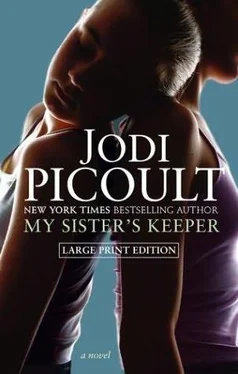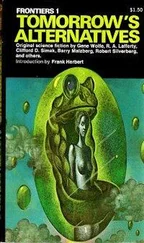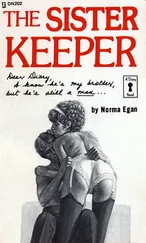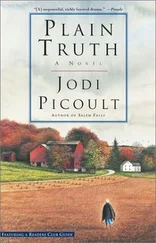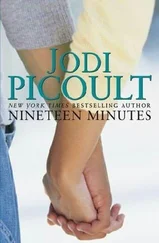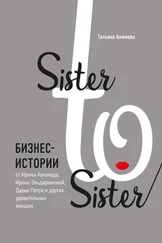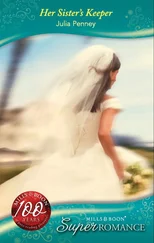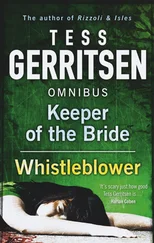"We're waiting," I tell the woman.
Sometimes I think it is all we ever do.
There was a moment, after Kate's three months of chemotherapy last year, that I was stupid enough to believe we had beaten the odds. Dr. Chance said that she seemed to be in remission, and that we would just keep an eye on what came next. And for a little while, my life even got back to normal: chauffeuring Jesse to soccer practice and helping out in Kate's preschool class and even taking a hot bath to relax.
And yet, there was a part of me that knew the other shoe was bound to drop. This part scoured Kate's pillow every morning, even after her hair started to grow back with its frizzy, burned ends, just in case it started falling out again. This part went to the geneticist recommended by Dr. Chance. Engineered an embryo given the thumbs-up by scientists to be a perfect match for Kate. Took the hormones for FVF and conceived that embryo, just in case.
It was during a routine bone marrow aspiration that we learned Kate was in molecular relapse. On the outside, she looked like any other three-year-old girl. On the inside, the cancer had surged through her system again, steamrolling the progress that had been made with chemo.
Now, in the backseat with Jesse, Kate's kicking her feet and playing with a toy phone. Jesse sits next to her, staring out the window. "Mom? Do buses ever fall on people?"
"Like out of trees?"
"No. Like… just over." He makes a flipping motion with his hand.
"Only if the weather's really bad, or if the driver's going too fast."
He nods, accepting my explanation for his safety in this universe. Then: "Mom? Do you have a favorite number?"
"Thirty-one," I tell him. This is my due date. "How about you?"
"Nine. Because it can be a number, or how old you are, or a six standing on its head." He pauses only long enough to take a breath. "Mom? Do we have special scissors to cut meat?"
"We do." I take a right and drive past a cemetery, headstones canted forward and back like a set of yellowed teeth.
"Mom?" Jesse asks, "is that where Kate will go?"
The question, just as innocent as any of the others Jesse would ask, makes my legs go weak. I pull the car over and put on my hazard lights. Then I unbuckle my seat belt and turn around. "No, Jess," I tell him. "She's staying with us."
"Mr. and Mrs. Fitzgerald?" the producer says. "This is where we'll put you."
We sit down on the set at the TV studio. We've been invited here because of our baby's unorthodox conception. Somehow, in an effort to keep Kate healthy, we've unwittingly become the poster children for scientific debate.
Brian reaches for my hand as we are approached by Nadya Carter, the reporter for the newsmagazine. "We're just about ready. I've already taped an intro about Kate. All I'm going to do is ask you a few questions, and we'll be finished before you know it." Just before the camera starts rolling, Brian wipes his cheeks on the sleeve of his shirt. The makeup artist, standing behind the lights, moans. "Well, for God's sake," he whispers to me. "I'm not going on national TV wearing blush."
The camera comes to life with far less ceremony than I've expected, just a little hum that runs up my arms and legs.
"Mr. Fitzgerald," Nadya says, "can you explain to us why you chose to visit a geneticist in the first place?"
Brian looks at me. "Our three-year-old daughter has a very aggressive form of leukemia. Her oncologist suggested we find a bone marrow donor—but our oldest son wasn't a genetic match. There's a national registry, but by the time the right donor comes along for Kate, she might not… be around. So we thought it might be a good idea to see if another sibling of Kate's matched up.”
“A sibling," Nadya says, "who doesn't exist."
"Not yet," Brian replies.
"What made you turn to a geneticist?"
"Time constraints," I say bluntly. "We couldn't keep having babies year after year until one was a match for Kate. The doctor was able to screen several embryos to see which one, if any, would be the ideal donor for Kate. We were lucky enough to have one out of four—and it was implanted through IVF."
Nadya looks down at her notes. "You've received hate mail, haven't you?"
Brian nods. "People seem to think that we're trying to make a designer baby."
"Aren't you?"
"We didn't ask for a baby with blue eyes, or one that would grow to be six feet tall, or one that would have an IQ of two hundred. Sure, we asked for specific characteristics—but they're not anything anyone would ever consider to be model human traits. They’re just Kate's traits. We don't want a superbaby; we just want to save our daughter's life."
I squeeze Brian's hand. God, I love him.
"Mrs. Fitzgerald, what will you tell this baby when she grows up?" Nadya asks.
"With any luck," I say, "I'll be able to tell her to stop bugging her sister."
I go into labor on New Year's Eve. The nurse taking care of me tries to distract me from my contractions by talking about the signs of the sun. "This one, she's gonna be a Capricorn," Emelda says as she rubs my shoulders.
"Is that good?"
"Oh, Capricorns, they get the job done."
Inhale, exhale. "Good… to… know," I tell her.
There are two other babies being born. One woman, Emelda says, has her legs crossed. She's trying to make it to 1991. The New Year's Baby is entitled to packs of free diapers and a $100 savings bond from Citizens Bank for that distant college education.
When Emelda goes out to the nurse's desk, leaving us alone, Brian reaches for my hand. "You okay?"
I grimace my way through another contraction. "I'd be better if this was over."
He smiles at me. To a paramedic/firefighter, a routine hospital delivery is something to shrug at. If my water had broken during a train wreck, or if I was laboring in the back of a taxi—
"I know what you're thinking," he interrupts, although I haven't said a word out loud, "and you're wrong." He lifts my hand, kisses the knuckles.
Suddenly an anchor unspools inside me. The chain, thick as a fist, twists in my abdomen. "Brian," I gasp, "get the doctor."
My OB comes in and holds his hand between my legs. He glances up at the clock. "If you can hold on a minute, this kid's gonna be born famous," he says, but I shake my head.
"Get it out," I tell him. " Now ."
The doctor looks at Brian. "Tax deduction?" he guesses.
I am thinking of saving, but it has nothing to do with the IRS. The baby's head slips through the seal of my skin. The doctor's hand holds her, slides that gorgeous cord free of her neck, delivers her shoulder by shoulder.
I struggle to my elbows to watch what is going on below. "The umbilical cord," I remind him. "Be careful." He cuts it, beautiful blood, and hurries it out of the room to a place where it will be cryogenically preserved until Kate is ready for it.
Day Zero of Kate's pre-transplant regimen starts the morning after Anna is born. I come down from the maternity ward and meet Kate in Radiology. We are both wearing yellow isolation gowns, and this makes her laugh. "Mommy," she says, "we match."
She has been given a pediatric cocktail for sedation, and under any other circumstance, this would be funny. Kate can't find her own feet. Every time she stands up, she collapses. It strikes me that this is how Kate will look when she gets drunk on peach schnapps for the first time in high school or college; and then I quickly remind myself that Kate might never be that old.
When the therapist comes to take her into the RT suite, Kate latches on to my leg. "Honey," Brian says, "it's gonna be fine."
She shakes her head and burrows closer. When I crouch down, she throws herself into my arms. "I won't take my eyes off you," I promise.
Читать дальше
